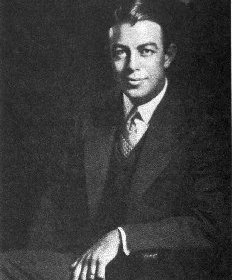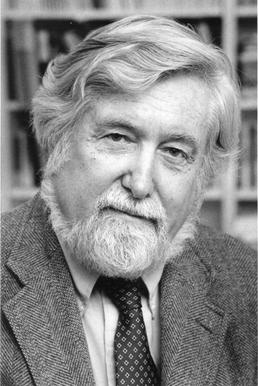Related Research Articles

Benjamin Lee Whorf was an American linguist and fire prevention engineer. He is known for "Sapir–Whorf hypothesis," the idea that differences between the structures of different languages shape how their speakers perceive and conceptualize the world. This principle has been named after him and his mentor Edward Sapir, which was initially called linguistic relativity by Whorf because he saw the idea as having implications similar to Einstein’s principle of physical relativity. The idea, however, follows from post-Hegelian 19th-century philosophy, especially from Wilhelm von Humboldt; and from Wilhelm Wundt's Völkerpsychologie.
The hypothesis of linguistic relativity, also known as the Sapir–Whorf hypothesis, the Whorf hypothesis, or Whorfianism, is a principle suggesting that the structure of a language affects its speakers' worldview or cognition, and thus people's perceptions are relative to their spoken language.

Friedrich Wilhelm Christian Karl Ferdinand von Humboldt was a Prussian philosopher, linguist, government functionary, diplomat, and founder of the Humboldt University of Berlin, which was named after him in 1949.
Dell Hathaway Hymes was a linguist, sociolinguist, anthropologist, and folklorist who established disciplinary foundations for the comparative, ethnographic study of language use. His research focused upon the languages of the Pacific Northwest. He was one of the first to call the fourth subfield of anthropology "linguistic anthropology" instead of "anthropological linguistics". The terminological shift draws attention to the field's grounding in anthropology rather than in what, by that time, had already become an autonomous discipline (linguistics). In 1972 Hymes founded the journal Language in Society and served as its editor for 22 years.

The Hopi are a Native American ethnic group who primarily live on the Hopi Reservation in northeastern Arizona, United States. As of the 2010 census, there are 19,338 Hopi in the country. The Hopi Tribe is a sovereign nation within the United States and has government-to-government relations with the United States federal government. Particular villages retain autonomy under the Hopi Constitution and Bylaws. The Hopi language is one of 30 in the Uto-Aztecan language family. The majority of Hopi people are enrolled in the Hopi Tribe of Arizona but some are enrolled in the Colorado River Indian Tribes. The Hopi Reservation covers a land area of 2,531.773 sq mi (6,557.26 km2).
A sprachbund, also known as a linguistic area, area of linguistic convergence, or diffusion area, is a group of languages that share areal features resulting from geographical proximity and language contact. The languages may be genetically unrelated, or only distantly related, but the sprachbund characteristics might give a false appearance of relatedness.

The four cardinal directions, or cardinal points, are the four main compass directions: north, south, east, and west, commonly denoted by their initials N, S, E, and W respectively. Relative to north, the directions east, south, and west are at 90 degree intervals in the clockwise direction.
Hopi is a Uto-Aztecan language spoken by the Hopi people of northeastern Arizona, United States.

Clifford James Geertz was an American anthropologist who is remembered mostly for his strong support for and influence on the practice of symbolic anthropology and who was considered "for three decades... the single most influential cultural anthropologist in the United States." He served until his death as professor emeritus at the Institute for Advanced Study, Princeton.
Etymology is the study of the history of the form of words and, by extension, the origin and evolution of their semantic meaning across time. It is a subfield of historical linguistics, and draws upon comparative semantics, morphology, semiotics, and phonetics.
Linguistic determinism is the concept that language and its structures limit and determine human knowledge or thought, as well as thought processes such as categorization, memory, and perception. The term implies that people's native languages will affect their thought process and therefore people will have different thought processes based on their mother tongues.
In the social sciences and related fields, a thick description is a description of human social action that describes not just physical behaviors, but their context as interpreted by the actors as well, so that it can be better understood by an outsider. A thick description typically adds a record of subjective explanations and meanings provided by the people engaged in the behaviors, making the collected data of greater value for studies by other social scientists.

The Tewa are a linguistic group of Pueblo Native Americans who speak the Tewa language and share the Pueblo culture. Their homelands are on or near the Rio Grande in New Mexico north of Santa Fe. They comprise the following communities:

Kenneth Locke Hale, also known as Ken Hale, was an American linguist at the Massachusetts Institute of Technology who studied a huge variety of previously unstudied and often endangered languages—especially indigenous languages of North America and Australia. Languages investigated by Hale include Navajo, O'odham, Warlpiri, and Ulwa.

The Awatovi Ruins, spelled Awat'ovi in recent literature, are an archaeological site on the Hopi Indian Reservation in northeastern Arizona, United States. The site contains the ruins of a pueblo estimated to be 500 years old, as well as those of a 17th-century Spanish mission. It was visited in the 16th century by members of Francisco Vásquez de Coronado's exploratory expedition. In the 1930s, Hopi artist Fred Kabotie was commissioned by the Peabody Museum to reproduce the prehistoric murals found during the excavation of the Awatovi Ruins. The site was designated a National Historic Landmark in 1964.
Emory Sekaquaptewa was a Hopi leader and scholar from the Third Mesa village of Hotevilla. Known as the "First Hopi" or "First Indian," he is best known for his role in compiling the first dictionary of the Hopi language. He became assistant professor, Department of Anthropology, University of Arizona in 1972, and was Professor in its Bureau of Applied Research in Anthropology from 1990 to 2007. Emory received the 4th Annual Spirit of the Heard Award by the Heard Museum in October 2007.
Hopi Dictionary: Hopìikwa Lavàytutuveni: A Hopi Dictionary of the Third Mesa Dialect with an English-Hopi Finder List and a Sketch of Hopi Grammar is an English-Hopi reference book published by the Dictionary Project at the Bureau of Applied Anthropology, the University of Arizona.
The Hopi time controversy is the academic debate about how the Hopi language grammaticalizes the concept of time, and about whether the differences between the ways the English and Hopi languages describe time are an example of linguistic relativity or not. In popular discourse the debate is often framed as a question about whether the Hopi "had a concept of time," despite it now being well established that they do.

Paul V. Kroskrity is an American linguistic anthropologist known primarily for his contributions to establishing and developing language ideology as a field of research. He is professor of anthropology, applied linguistics, and American Indian Studies at the University of California, Los Angeles. He is the past President of the Society for Linguistic Anthropology and past Chair of the American Indian Studies program at the University of California, Los Angeles.
Claus Peter Zoller is a linguist and professor of South Asian Studies at the Department of Culture Studies and Oriental Languages of the University of Oslo. His research interests include Hindi literature and linguistics, the languages of the Western Himalayas and northern Pakistan (Dardic), cultural traditions and ethnography of those regions, as well as Romani linguistics. He is known for his work on the documentation of Indus Kohistani and Bangani, and his broader work on the linguistic history of Indo-Aryan languages.
References
- Geertz, Armin (2000). "Rethinking Hopi Ethnography by Peter M. Whiteley". Anthropos (review). 95 (1): 312–313. JSTOR 40465937.
- Hopi Dictionary Project, (University of Arizona Bureau of Applied Research in Anthropology) (1998). Hopi Dictionary: Hopìikwa Lavàytutuveni: A Hopi-English Dictionary of the Third Mesa Dialect with an English-Hopi Finder List and a Sketch of Hopi Grammar . Tucson, Arizona: University of Arizona Press. ISBN 0-8165-1789-4.
- Leavitt, John (2011). Linguistic Relativities: Language Diversity and Modern Thought. Cambridge, UK: Cambridge University Press. ISBN 978-0-521-76782-8.
- Malotki, Ekkehart (1979). Hopi-Raum: Eine sprachwissenschaftliche Analyse der Raumvorstellungen in der Hopi-Sprache (in German). Tübingen: Gunter Narr Verlag.
- Malotki, Ekkehart (1983). Hopi Time: A Linguistic Analysis of the Temporal Concepts in the Hopi Language. Trends in Linguistics. Studies and Monographs. Vol. 20. Berlin, New York and Amsterdam: Mouton Publishers.